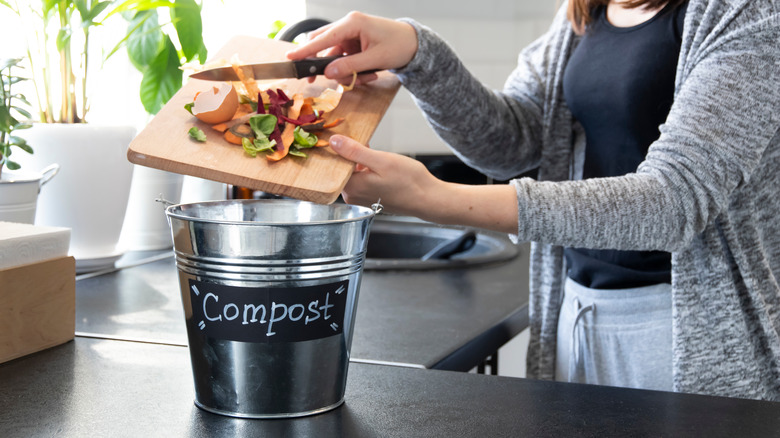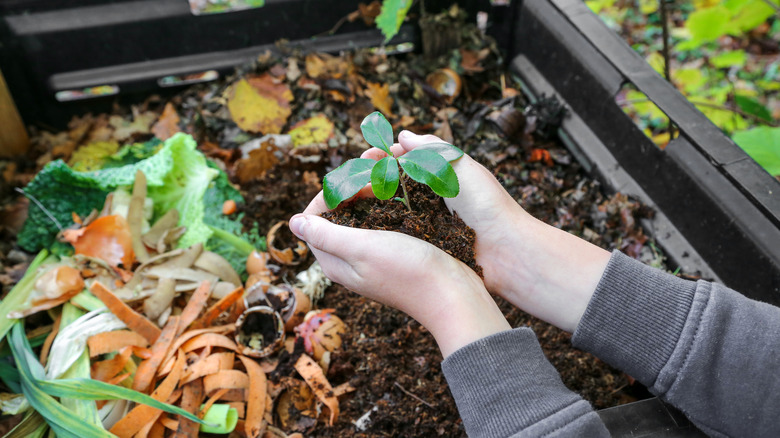This Is A Tell-Tale Sign Your Compost Is Ready To Use
What do you do with all of the leftover food scraps — peels, rinds, skins, vegetable bits, etc. — after you're finished cooking? Sure, you could toss them in the trash (and many people do), but if you're trying to live a more sustainable lifestyle, you might consider composting them instead. Compost reduces the amount of food waste that goes into landfills — which the U.S. Environmental Protection Agency (EPA) explains makes up over 30 percent of what we throw away — and creates a nutrient-rich organic mixture that can be used to fertilize soil or gardens.
Getting started composting is easy: Get a tightly sealed container, toss your fruit and veggie waste inside, and wait for it to decompose. The EPA even provides a convenient list of what you can and cannot compost. But how do you know when your eco-friendly creation is ready to use? Here's an easy way to tell, according to composting veterans.
It should look and smell earthy
To judge whether or not your compost is finished, well, composting, you'll want to consider both the look and smell. Appearance-wise, it should no longer look like individual rotting food scraps but rather a dark brown, crumbly mixture (via Planet Natural). Green Matters says that it should almost resemble topsoil and that if you see large chunks of matter, your compost is likely still breaking down (the only exception is for longer-to-decompose items like wood chips). As for the odor? "If you bring it to your nose, it should smell earthy, not sour," Delish explains. Meaning, it should smell like dirt, not ammonia.
It's important to test your compost to make sure it's fully ready before using it because, as scientists at the University of Florida caution, immature compost can harm and actually kill your plants by changing their environment to a point where they can no longer thrive or survive.

